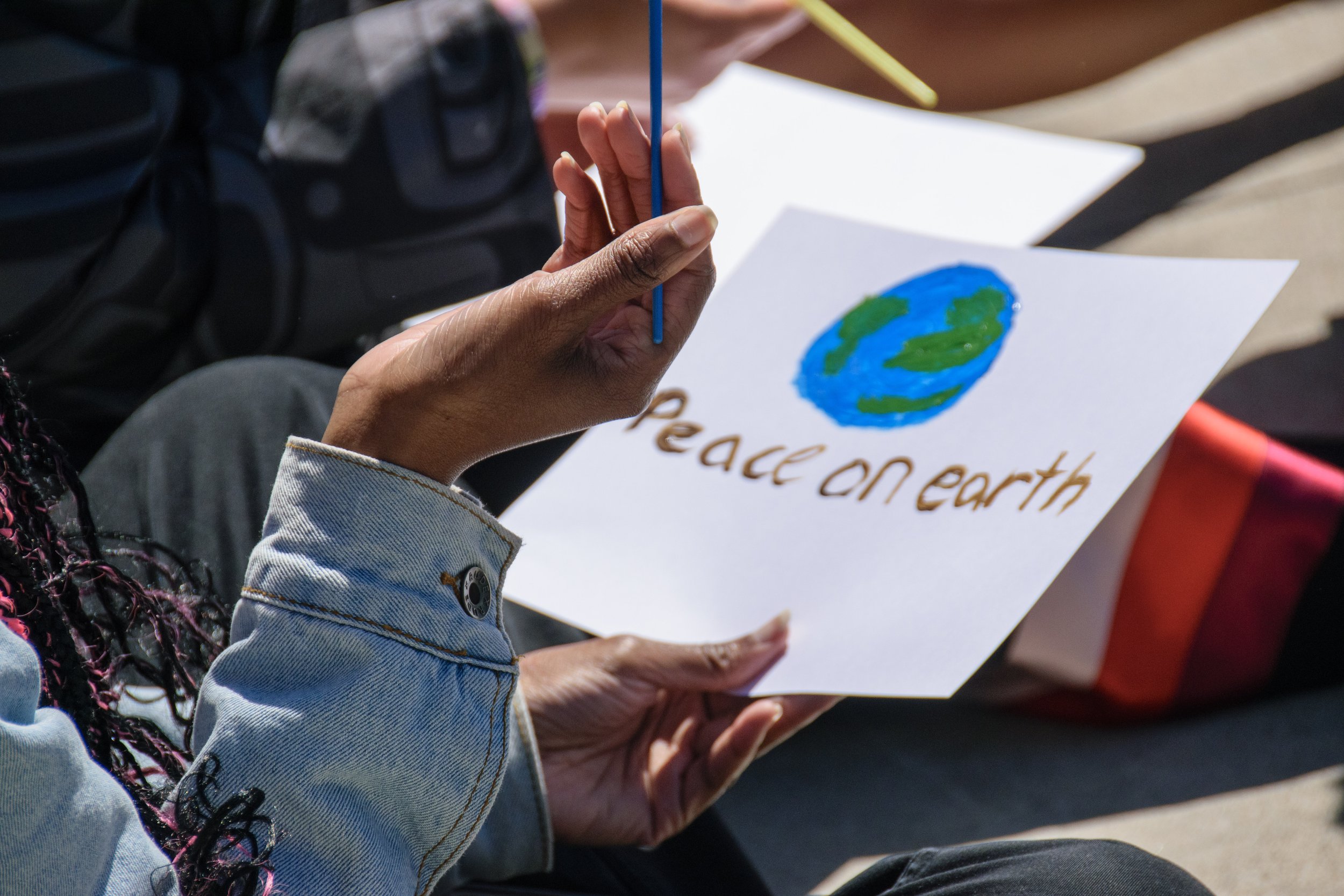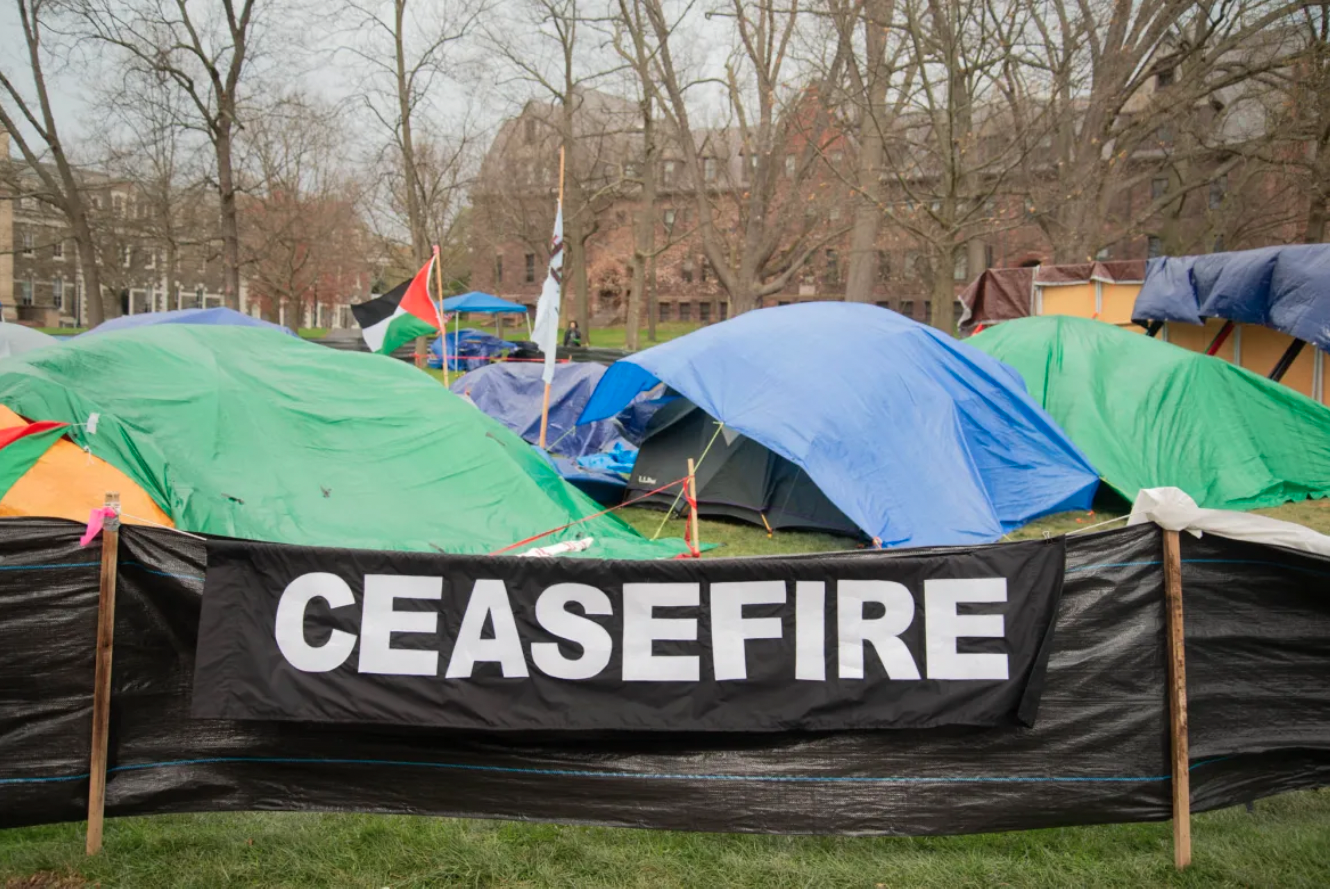
on genocide and ecocide
While the world burns, the fires of war and genocide are stoked and fed innocent lives.
We condemn US provision of military aid to the state of Israel being used to perpetrate a genocide in Gaza.
We support the demands put forward to Cornell by the Coalition for Mutual Liberation.
A better world is possible. We must strive to reconnect with one another and with earth on our shared commons.
The context for each statement is outlined below. These statements are offered May 10, 2024, and could be revised at any point.
The world is on fire
There is a simple explanation for the feeling of urgency that propels movements for climate justice: our house is on fire. Every day that we spend in denial — pretending that “business as usual” is a viable socioeconomic model and “each man for himself” (as the patriarchy would put it) a viable moral stance — brings the global ecosystem closer to multiple tipping points, each of which, if crossed, spells major environmental and social catastrophe. Tragically, our state of denial extends also to multiple engineered catastrophes in the form of the human and environmental toll exacted by wars between states (as in Russia’s war on Ukraine), by asymmetrical warfare between states and people under their military control (as in Israel / Palestine), and by various slower-burning ethnic and religious conflicts (as in Sudan, Xinjiang, or Afghanistan).
In this house that we all share and that is already surrounded by fire, the fires of war are kindled and stoked and fed innocent lives. Ecocide and genocide are often two sides of the same coin, especially where Indigenous people are targeted (as explained, for instance, by Lauren Eichler or by Abbey Koenning-Rutherford) — which is why ecocide must be listed alongside genocide as an international crime. This is also why it makes no sense to strive for climate justice while tolerating war, and why peace can only be real when climate justice is assured.
The fires of genocide
Genocidal violence is at its most insidious when the eyes of the world are turned away from it. This is why it is vitally important for us to insist that our governments and institutions uphold humanitarian law in each and every instance of genocide, historial or ongoing (and why killing journalists who report from a war zone is a particularly heinous crime). A document released by the Crisis Group lists ten conflicts to watch in 2024: Gaza; Wider Middle East War; Sudan; Ukraine; Myanmar; Ethiopia; The Sahel; Haiti; Armenia-Azerbaijan; U.S.-China.
A 2024 report compiled by Genocide Watch mentions the following ongoing genocide emergencies (which it distinguishes from the lower-grade “genocide warnings”): renewed genocide in Darfur and Sudan; jihadist genocide of Christians in Nigeria; Russian genocide in Ukraine; slow genocide of Hazara Shias in Afghanistan; Assad regime and Turkish genocides in Syria; genocide in North Korea; genocides of ethnic minorities in Myanmar; persecution of Rohingya refugees in Bangladesh and India; Chinese genocide of Uyghur Muslims; Hamas genocide of Israelis; Israeli war crimes and genocide in Gaza; genocide in Ethiopia; genocide in Democratic Republic of Congo.
The Gaza war
Among all these ongoing genocidal conflicts, the one between Israel and Palestine stands out as particularly intractable (and particularly close to home, in that the U.S. government unilaterally supports the Israeli side). Here at Cornell, the stance of the administration against peaceful protest to stop genocide renders the issue both urgently local and global.
The atrocities of the present reflect and require a long view. The 1948 founding of the State of Israel followed the Nazi Germany’s genocide against Jews; the war that ensued led to a mass dispossession and expulsion of Palestinians from Palestine, mirrored by the expulsion of Mizrahi Jews from Arab and Muslim-majority countries. Following the 1967 Arab-Israeli war, Israel established an occupation regime that placed millions of non-citizen Palestinians under its military control.
Even allowing for the complexities of that background, the suffering of civilians in the present Israeli war on Gaza is without parallel in the region: the most recent available report on Israel and Palestine by the Human Rights Watch states that “In 2023, civilians were targeted, attacked, and killed at an unprecedented scale in the recent history of Israel and Palestine,” and a United Nations report found that Israel’s response meets the threshold for committing genocide.
The Crisis Group document (mentioned earlier) achieves the nearly impossible by condensing the context for Israel’s present onslaught on Gaza into its introductory paragraph:
Can we stop things falling apart? 2024 begins with wars burning in Gaza, Sudan and Ukraine and peacemaking in crisis. Worldwide, diplomatic efforts to end fighting are failing. More leaders are pursuing their ends militarily. More believe they can get away with it. [...] The past few months’ ghastly turn in Israel-Palestine is perhaps the trend’s starkest illustration. Peacemaking efforts there petered out years ago, and world leaders largely looked away. Several Arab governments struck U.S.-brokered deals with Israel that mostly ignored Palestinians’ plight. Israel ate up more Palestinian land, with settlers acting ever more brutally, often in concert with the Israeli army. The occupation became ever crueller. Palestinians’ hopes of statehood withered, as did the credibility of their leaders who had banked on cooperation with Israel. Nothing can justify Palestinian militants’ murderous rampage on 7 October. But the Israeli-Palestinian conflict did not start that day. Now, the Hamas-led attack and Israel’s retribution in Gaza – an assault that has razed much of the strip and could plausibly expel many of its inhabitants – may well erase hope for peace for a generation.
It is tempting to force this terrible reality into the standard mold that fits so well so many other wars fought over land during the colonial era: an Indigenous people is attacked, conquered, and dispossessed by European colonizers, who proceed to oppress and slaughter the survivors. However, indiscriminately branding Israel as a colonizing power and all Israelis as “white settlers” — an all too common practice on the part of those who unfortunately don’t know better — would be a grave historical mistake. First, the Jewish presence in Palestine (recognized by the UN 1947 partition plan) predates by millennia its conquest and settling by the Muslim Rashidun caliphate in 634-638 CE. Second, the present population of Israel is majority Mizrahi and as such has arguably more in common with its Palestinian neighbors than with white Europeans.
Faced with such a long-standing conflict over territory, it is all too easy to fall into the extreme of denying the other side any rights, including the right to exist on the land of their ancestors. This is the extremism of ultra-nationalistic and messianic Zionist Jews, some of whom are presently in government in Israel and are perpetrating a second Nakba in Gaza. This is also the case of Palestinian movements such as Hamas and Islamic Jihad, who would use force to dismantle the Jewish state and send the survivors “back to Europe”. Nothing can come out of endorsing those views except more suffering, more destruction, more dispossession, and more death.

A better world is possible
Surely we can do better than that. It should be possible to resolve this conflict without running roughshod over anyone’s historical rights, whether of Jews or of Palestinians, by recognizing that indigeneity can be inclusive — and that land should be seen not as property to guard against perceived outsiders, but rather as a commons, where we are all guests and whose fruits we must therefore share with all.
We can learn to do so from the Indigenous people, our neighbors here on Gayogohó:nǫˀ lands. Cornell Professor Michael Charles, Diné (Navajo) scholar and Assistant Professor in Biological and Environmental Engineering, spoke these words as the opening address for Reclaim Earth Day on the Ithaca Commons on April 22, 2024:
A Dené elder, my northern Athabaskan relative, once told me a prophecy, "It was spoken that the white man would come. First, for gold and oil. And we'd invite them to our lands, and they would take. And take. They would harm us and leave us with little, if anything at all. And we would remain and return to our practices. But, the white man will return again. This time for food and clean water. And how will we respond? We will forgive them and we will give them food and water."
I cannot give a better example of what it means to walk in beauty. That is love. That is forgiveness. That's the power of reconnecting to each other and reconnecting to the land. So although we're here to make a statement, to demand better from our governments and institutions, to take on the battle of decarbonization — let's not forget the power of healing our spirits.
Our position on current events
At this time, the US government is providing military aid to the state of Israel that is being used to perpetrate a genocide in Gaza. In unison with many other concerned groups, Cornell on Fire condemns the continuation of this action on the part of our government, which amounts to complicity in genocide. We also condemn Cornell’s investment in arms companies fulfilling military contracts that supply the means for mass killing and ecological destruction. We support wholeheartedly the demands put forward to Cornell by the Coalition for Mutual Liberation. Finally, we support the right to protest and call on the Cornell administration to take seriously the demands of CML and refrain from punitive actions intended to shut down peaceful protestors.

